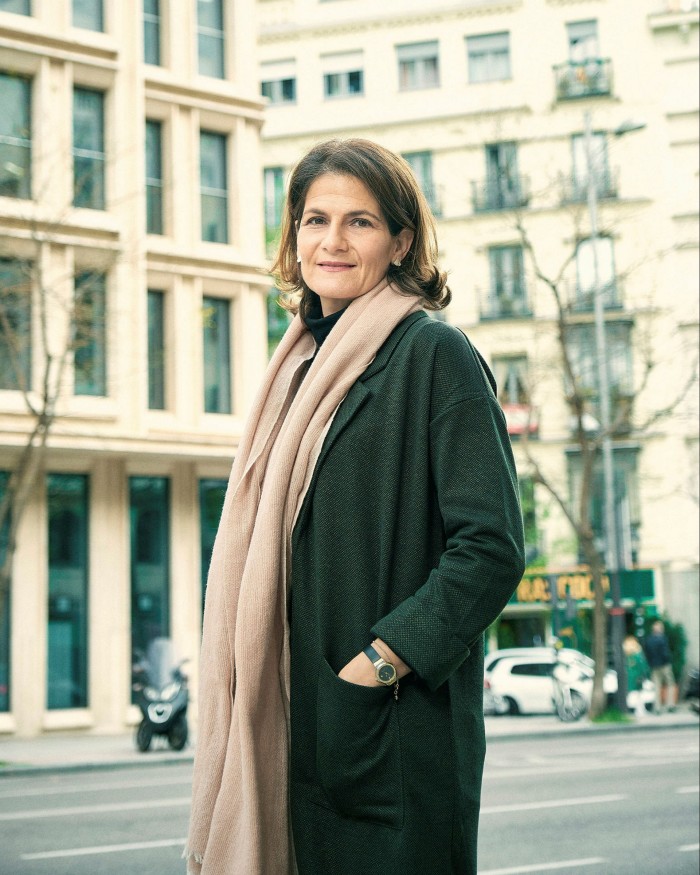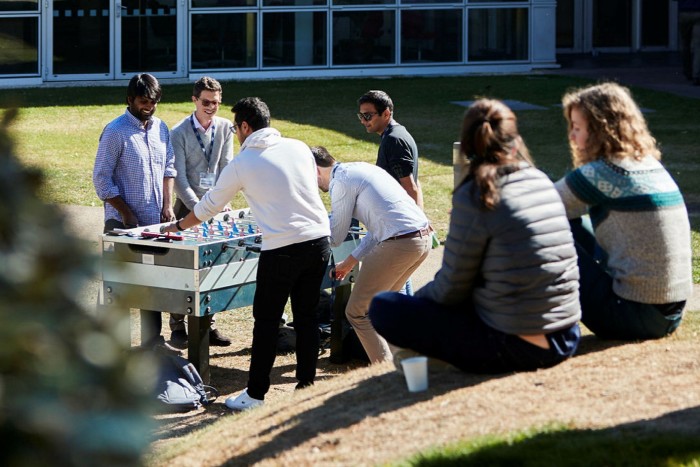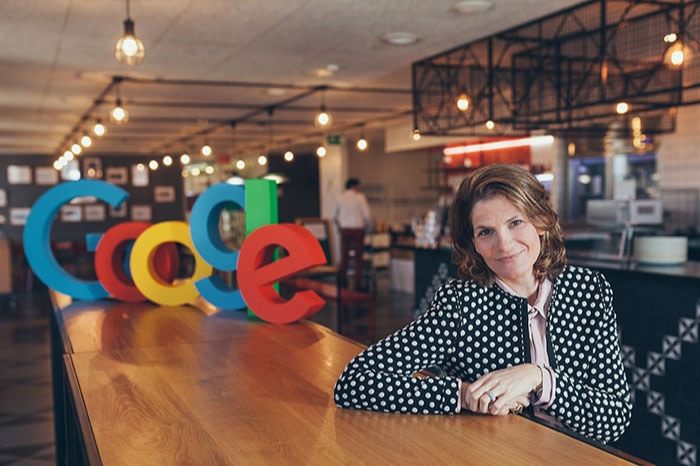How an MBA launched a Google high flyer’s lifelong search

Roula Khalaf, Editor of the FT, selects her favourite stories in this weekly newsletter.
Fuencisla Clemares is “studying all the time”, she says. “The day I stop, I will be out of the market.” This relentless focus on learning has been the mark of a career spanning retail, management consulting and a decade of ascent at Google.
The drive to learn continues, for the past four years as a country manager for Spain and Portugal at Google. “I believe that being out of your comfort zone is key to developing yourself and to grow,” she says.
FT MBA ranking 2021 — top 100

Find out which schools are in our ranking of MBA degrees. Learn how the table was compiled.
Clemares set a stiff pace from the start. In 1996, she finished her undergraduate business degree and joined retailer Continente in Madrid. After a year in the credit department, she was ready for a new challenge and moved into audit. Just 12 months later she again asked, what next?
The Spaniard is from a family of business people. One brother had studied for an MBA at Iese business school in Barcelona a few years before. “I saw the impact it had on his career,” she says. “I wanted to continue growing and I saw that in the company I was in, that was not going to happen at the pace I wanted. So I said to myself, maybe it is a moment to jump into an MBA.”
Clemares joined Iese’s programme in 1998. She already had a bachelor’s degree in business administration, so could a masters really push her and offer the leap forward in learning that she desired? The MBA was “completely different”, she says, and taught a new set of skills.
During a bachelors degree the focus tends to be on theory, says Clemares, whereas the MBA teaches the “bare minimum” of theory and moves very quickly into practical applications. The case study method means that “you approach problems in a more holistic way and [this] really helps you think strategically”, she says, adding that because students are “super stretched”, they are forced to develop new skills, such as how to prioritise. The MBA environment simulates “the rhythm you have in high-performing companies”, she notes.
The masters gave Clemares’ career the boost she sought, opening up career options such as consulting, investment banking and private equity. “The MBA gets you ready to access those roles and that gets you into accelerated career paths,” she adds.
In 2000, after graduating from Iese, she joined McKinsey, the management consultancy. She soon became aware of a lack of diversity at the top. “At that time, there were zero women partners,” she says. Fostering diversity in business was to become a theme of her career and at McKinsey she helped establish an initiative in which top female executives held breakfast meetings to network and share experiences.
“We had some very basic questions I could not ask a man, because men have different strengths and very different problems,” she says. One small example was how to greet people in a professional setting. In Spain, it is customary (for men or women) to greet a woman socially with a kiss on both cheeks. This was increasingly common at business meetings, where the atmosphere was becoming less formal. But men would still shake hands. Clemares wanted a better understanding of what the protocol should be.
CV
2009 to present Google. Began as a manager of its retail and FMCG businesses, then sales director running travel, retail and telecom industries in Spain. Now country manager for Spain and Portugal.
2007-09 Homeware director for Spain at French retailer Carrefour
2000-07 McKinsey, rising to associate principal
1998-2000 MBA at Iese
1996-98 Credit and audit roles at retailer Continente
The breakfast meetings turned into larger structural initiatives, such as special training sessions for women. McKinsey now has a policy of recruiting and developing female talent, especially in senior roles, she notes.
Women’s leadership styles have not always been well understood or “correctly valued”, says Clemares. For instance, she recalls receiving feedback that she was “too nice”. She shared this with a professional coach, who advised her that her voice was too quiet, so she headed off further criticism by speaking up. Those giving the feedback had seen there was a problem from their own perspective, says Clemares. That is the “beauty of diversity”, she adds — you receive broader perspectives and different assessments, and your leadership style is better understood.

Today, says Clemares, who is a mother of three, the situation is “completely different”. It is “fully understood and fully embraced” that diversity adds value to a company — though it still takes time to change corporate culture.
More broadly, Clemares says that business transformation has altered in three main ways during her career: the pace of change has accelerated, it is continuous and it has become much more complex. She rejects the notion of digital transformation, however, saying that technology is an enabler but change must be driven by the business itself.
There are “much deeper connections between everything we do”, says Clemares, adding that technology affects every aspect of a company at every level. “The complexity of the change you need to drive is huge,” she says. “You need to have a comprehensive view of the company. You also need to have a minimum [level of] knowledge of technology.”
Asked what advice she would give her 20-year-old self, Clemares looks to technical skills. She was good at maths, physics and science but never gave a thought to a technical career. This may have been because she was from a family of business people, she suggests, or perhaps because when she looked at technical university courses, they were “full of men . . . and I didn’t look like them”.
Clemares believes, however, a blend of technical skills and an MBA would have been “the perfect combination to succeed in the environment we have now”. She continues to learn through Google’s internal courses, from technical experts on her team and by making herself lead meetings with clients on topics in which she is not an expert and must therefore go to extra lengths in preparing for.
Clemares returns to Iese to teach classes on the MBA and lectures at ISDI in Madrid, which describes itself as “the first digital business school”. While she says schools must keep adapting their MBAs to the business environment, one skill she learnt remains unchanged for her: leadership. “Being a leader is the same [as 20 years ago]. It is being able to develop a vision and strategies, and share that with our teams in a way that motivates and inspires them. It is about building high-performing teams and managing them under stressful situations and uncertainty,” she says.
The pace of change may have increased, says Clemares, but she “truly and deeply” believes the essence of leadership is constant and what she learnt two decades ago has stood the test of time. “I believe the MBA experience is very valid, even in this world that is so different.”
Comments